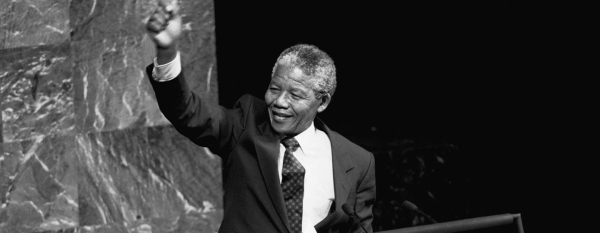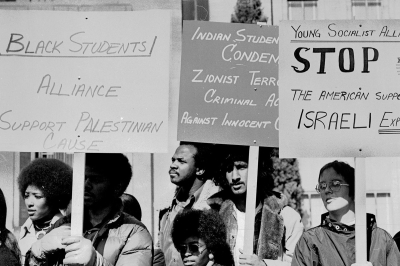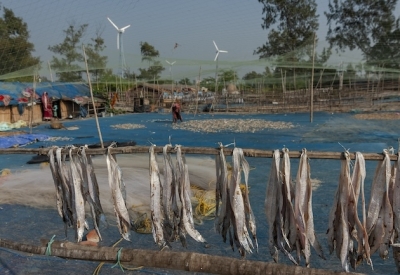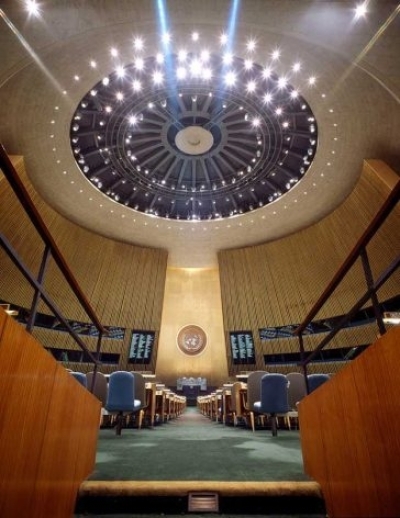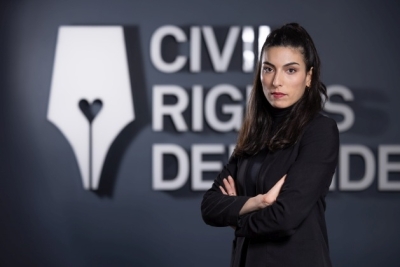Adamu* got two years for stealing in Nigeria, Denny is serving five years in Indonesia, and Lauro José dos Santos served a 12-year sentence in Brazil, but ongoing reform efforts rooted in the “Mandela Rules” and a range of UN-supported programmes are helping them and prisoners around the world get a second chance upon their release.
Nearly 12 million people are imprisoned globally, with almost one third awaiting sentencing, at a time when prisons are overcrowded in half of all countries, according to a new UN report released on Tuesday. On the occasion of Nelson Mandela International Day, marked on 18 July, UN News took a look at some ongoing efforts.
The legacy of the late former President of South Africa, who had been incarcerated under the country’s apartheid regime for 27 years, lives on, including in supporting prisoners’ rights.
‘Mandela Rules’
Mr. Mandela’s words resonate even today among inmates and prison staff alike around the world: “It is said that no one truly knows a nation until one has been inside its jails. A nation should not be judged by how it treats its highest citizens, but its lowest ones.”
“It is said that no one truly knows a nation until one has been inside its jails. A nation should not be judged by how it treats its highest citizens, but its lowest ones.” – Nelson Mandela
UN Secretary-General António Guterres said on Tuesday that Mr. Mandela “was a colossus of courage and conviction, a leader of immense achievement and extraordinary humanity, a giant of our times, whose legacy we best honour through action”.
Against a backdrop of current reports of human rights violations against inmates from Honduras to Iran alongside a rise in violent extremism and recruitment by terrorists behind bars in some countries, new prison reform initiatives are taking action in all regions. They are guided by the Mandela Rules, or, as they are officially known, The United Nations Standard Minimum Rules for the Treatment of Prisoners, which offers a 21st century blueprint for good prison management.
#PrisonersMatter

The theme of this year’s Mandela Day is “prisoners matter”, with the Mandela Rules providing a guide. The rules offer clear benchmarks for prison officials on safety, security, and the humane treatment of inmates. As custodian of the rules, the UN Office on Drugs and Crimes (UNODC) works to promote and support their adoption worldwide.
From a free self-paced e-learning courses to equipping training facilities with laptops and internet services, the agency and its partners also work on community involvement in inmate rehabilitation and reintegration.
In Yola, Nigeria, where the prison population has increased more than 25 per cent since 2000, the agency organized a platform for community leaders and the Nigerian Correctional Service to foster a more integrated approach towards reintegrating inmates.
Global initiatives
More broadly, the agency’s prisoner rehabilitation initiative covers education, vocational training, and employment during incarceration. The goal is to contribute to their employability after release, thus reducing chances of recidivism.
The agency explained that prisoners are often a forgotten population, with many in society thinking about them as separate from the rest of society. But, they are a product of and remain part of society, and the vast majority of prisoners will eventually be released.
“What happens to people in the course of imprisonment affects all of us in many ways: public safety, our health, our community’s finances, social cohesion, and ultimately the human dignity of us all,” according to UNODC. “When we reduce the scope of imprisonment, improve prison conditions, and enhance social reintegration prospects, we are all better off. Prisoners matter.”
Combatting violent extremism

A five-year effort with UNODC and partners has reached thousands of inmates in Kazakhstan, Tunisia, and Uganda in a bid to prevent the spread of violent extremism in prison settings.
“Prisons play a crucial role in tackling this challenge by ensuring the secure and safe custody of violent extremist prisoners, preventing radicalization to violence within prisons, disengaging prisoners from future violence, and preparing released persons for reintegration into the community,” according to the agency.
Achievements included training more than 6,500 prison officers, launching Tunisia’s first-ever research centre on violent extremism in prisons, and establishing rehabilitation and reintegration programmes for inmates, from computer literacy to furniture-making.
The joint effort also supported prisons during the COVID-19 pandemic, including sharing guidance documents, providing medical equipment, and vaccinating more than 12,000 prisoners, prison staff, and family members in Uganda.
Second chances

For some prisoners, the results are worth these myriad efforts. Adamu from Nigeria learned millinery in prison, taking his talents forward upon release. He is now an employer who makes fine caps popular with local traditional leaders.
Denny, who is halfway through his five-year sentence in Indonesia, is looking forward to getting out and getting a job in a coffee shop. He spends days in vocational training and religious studies.
“My main drive right now is to be a better person than I was before,” he said, adding that until that day, he will focus brewing perfect cappuccinos in barista classes.
When Mr. dos Santos left prison in Brazil in 2019, he asked for help and got it from the Social Office, supported by the UN Development Programme (UNDP).
“I arrived here and noticed that the doors were open,” he said, describing his first visit. “They treated me very well and showed me there’s a second chance.”
* Names have been changed to protect their privacy.
Snapshot of prisons today
UNODC launched a new report on Tuesday, providing a look at people held in prison, including the latest data. Here are some highlights:
- Since 2000, the world’s prison population has increased by more than 25 per cent.
- One in every three prisoners worldwide is held without having been found guilty by a court of justice.
- In one out of five countries with available data, prisoners outnumbered the prison capacity by more than 150 per cent.
- Northern America, sub-Saharan Africa, and Eastern Europe have experienced long-term decreases of up to 27 per cent in imprisonment rates since 2000, while Latin America, Australia, and New Zealand have seen growth of up to 68 per cent over the last two decades.
- Most persons detained in prison globally are men (93 per cent).
- Over the last 20 years, the number of women in prisons has increased by 33 per cent while there was a 25 per cent increase in the number of male inmates.
Learn more about how UNODC is working with nations to implement prison reform here.

